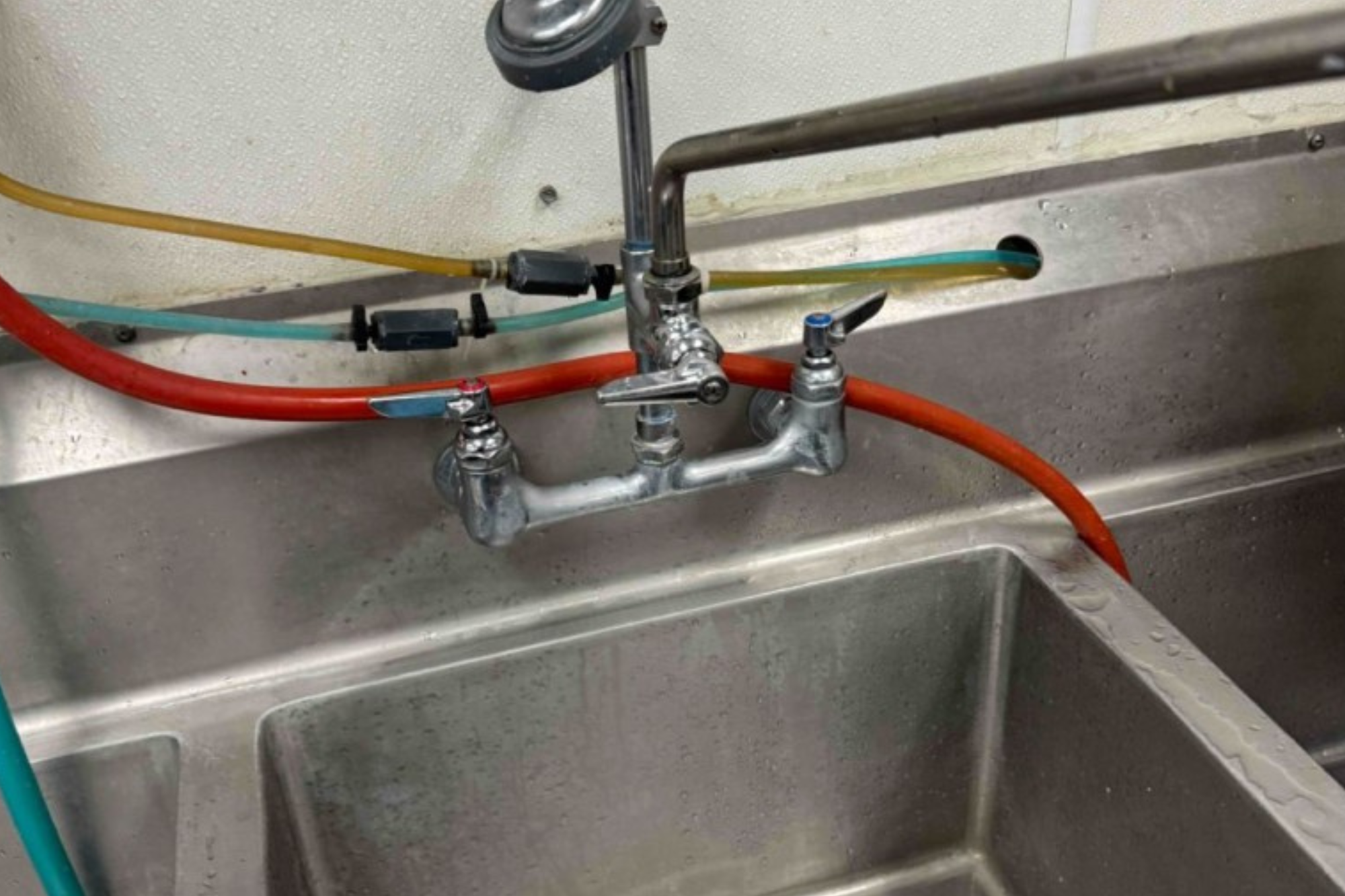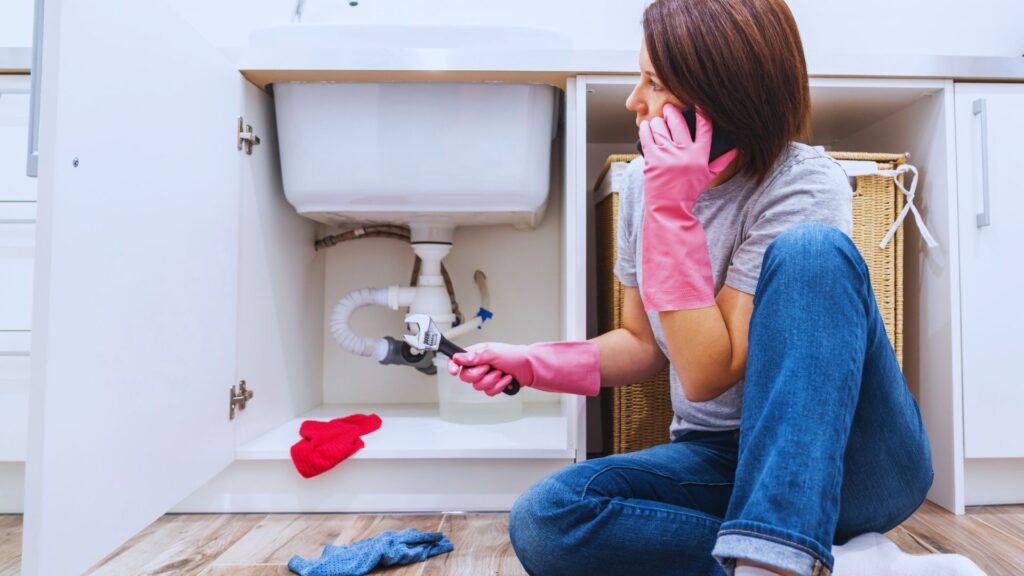Neglecting plumbing maintenance incurs multifaceted financial liabilities, such as skyrocketing utility expenses and escalated repair costs from unchecked leaks. Operational disruptions from plumbing failures can halt productivity and elicit customer dissatisfaction, compromising your business’s reputation. Health hazards arise when sewer backups create biohazard environments or corroded pipes leach metals into water supplies, risking regulatory noncompliance. Structurally, chronic leaks threaten foundational integrity, leading to extensive and costly repairs. Each of these aspects results in serious detrimental impacts on your bottom line. A more thorough examination reveals the intricate details and extensive ramifications of inadequate plumbing upkeep.
Key Takeaways
- Poor plumbing maintenance can lead to increased utility bills from water wastage, straining business finances.
- Frequent plumbing failures disrupt operations, reducing productivity and potentially damaging customer satisfaction and business reputation.
- Health risks from plumbing issues include mold growth and potential biohazards, compromising workplace safety and health compliance.
- Structural damage from leaks and backups can necessitate costly repairs, affecting business infrastructure and operational budgets.
- Proactive plumbing maintenance prevents emergencies, reduces costs, and enhances business resilience and property value.
Increased Utility Costs
While it might seem trivial, ignoring minor plumbing issues can stealthily inflate your business’s utility costs. Leaky faucets, malfunctioning toilets, and inefficient water heaters contribute to a gradual increase in water consumption, directly impacting your monthly utility bills.
Plumbing maintenance for businesses isn’t just about preventing emergencies; it’s about enhancing system performance to guarantee every drop of water is utilized effectively. A single dripping faucet can waste hundreds of gallons yearly, turning into a significant financial drain.
By engaging in commercial plumbing Aurora CO services with regular inspections and maintenance, you can identify inefficiencies such as worn-out washers or misaligned valves that compromise water usage efficiency. Addressing these seemingly minor issues can yield substantial savings.
Implementing a proactive maintenance strategy involves routine checks for leaks, guaranteeing all components operate within ideal parameters. This practice not only prevents increased utility costs but also extends the lifespan of your plumbing infrastructure.
Moreover, outdated systems often lead to inefficiencies. Consider upgrading to water-efficient fixtures and appliances, which can drastically reduce water usage.
Disruption of Operations
When plumbing issues arise, they can bring your business operations to a screeching halt. Poor plumbing maintenance often results in unexpected system failures, leading to a significant disruption of business operations.
Imagine a critical pipeline rupture in your commercial facility. The resultant water leakage can incapacitate essential machinery, halt production lines, and create a hazardous work environment. This not only affects your immediate business processes but also cascades into downstream activities, causing a backlog in your supply chain.
Moreover, intricate issues like clogged drains or low water pressure can cripple your operations by slowing down routine tasks, thereby affecting productivity. A malfunctioning hot water system in a restaurant or hotel, for example, could lead to service delays, negatively impacting customer satisfaction and brand reputation.
The domino effect of such disruptions often leads to expensive emergency repairs, which could’ve been avoided with regular maintenance.
Health and Safety Risks
Beyond operational disruptions, plumbing failures pose vital health and safety risks that no business can afford to ignore. Poor plumbing maintenance can lead to commercial plumbing service problems like sewer backups, which present immediate biohazard threats. These backups can release harmful pathogens into the air, jeopardizing the health of employees and customers alike.
Furthermore, stagnant water from leaks or clogs can become a breeding ground for mold and mildew, greatly deteriorating indoor air quality and potentially causing respiratory issues.
Neglected plumbing systems can also introduce contaminants into your water supply. Corroded pipes, a common result of poor plumbing maintenance, may leach harmful metals such as lead and copper into drinking water, violating health codes and risking severe regulatory penalties.
Additionally, low water pressure can hinder essential sanitation processes, compromising hygiene standards necessary for businesses like restaurants and medical facilities.
Not addressing these commercial plumbing problems could lead to costly legal liabilities if someone falls ill due to your facility’s compromised infrastructure. Proactive inspection and maintenance are paramount to safeguarding your business’s health standards, ensuring compliance, and protecting your reputation.
Prioritize plumbing health to avoid these vital risks.
Structural Damage Concerns
Unaddressed plumbing issues can wreak havoc on a building’s structural integrity, posing significant risks to your business’s physical assets. Poor plumbing maintenance often leads to chronic leaks, which can saturate foundational elements like beams and joists. This persistent moisture exposure compromises the tensile strength of materials, leading to warping, rot, and eventual structural failure.
Commercial plumbing problems, such as sewer backups or pipe bursts, exacerbate these risks by accelerating water infiltration into load-bearing components. Inefficient plumbing systems result in high humidity levels, creating an environment conducive to mold proliferation. Mold infiltration not only deteriorates building materials but also increases the risk of structural collapse.
Additionally, the constant cycle of water damage and mold remediation can weaken the overall framework of your infrastructure, necessitating costly and extensive renovations. Ignoring these plumbing issues elevates the risk of catastrophic structural failure. For instance, undetected leaks can undermine soil stability around the foundation, causing uneven settling or even subsidence.
This can lead to cracked walls, misaligned doors, and compromised architectural integrity. By addressing these concerns proactively, you safeguard your business from debilitating structural damage, ensuring operational continuity and asset protection.
Negative Customer Experience
While businesses often focus on product quality and service efficiency, plumbing issues can insidiously erode customer experience. When poor plumbing maintenance is neglected, seemingly minor problems like leaky faucets or clogged drains can escalate into major disruptions.
Imagine a customer walking into your establishment only to encounter unpleasant odors emanating from a malfunctioning sewer system. Such business plumbing problems immediately tarnish customer perception, leading to a negative brand image.
Your restroom facilities, often a direct reflection of your business standards, can become a liability if plagued by plumbing inefficiencies. A clogged toilet or low water pressure doesn’t just inconvenience customers; it communicates negligence in maintaining a professional environment.
Customers may perceive these issues as indicative of deeper operational lapses, casting doubt on your overall business competence.
Moreover, consider the auditory assault of dripping pipes in an otherwise serene setting. Such distractions can diminish the customer experience, leading to decreased satisfaction and potential loss of patronage.
Addressing business plumbing problems proactively guarantees your clientele enjoys an uninterrupted, positive experience. Investing in regular maintenance not only safeguards your infrastructure but also fortifies your reputation, providing a seamless visit for every customer.
Long-term Repair Expenses
The inevitability of long-term repair expenses looms large when businesses overlook routine plumbing maintenance. Poor plumbing maintenance can exponentially increase business plumbing repair costs as small, unattended issues escalate into extensive system failures.
Without regular inspections, minor leaks infiltrate infrastructure, causing deterioration and structural compromise. Consequently, you’re not just dealing with the immediate cost of fixing a leak but also the compounded expenses of replacing damaged walls, floors, and potentially critical business assets.
In the commercial sector, deferred maintenance often results in catastrophic plumbing failures, necessitating emergency interventions. These unscheduled, urgent repairs are typically costlier due to the urgency and potential need for specialized equipment or parts.
Additionally, repeated repairs inflate operational budgets, diverting funds from growth initiatives and other critical business operations.
The domino effect of neglected plumbing maintenance is evident in skyrocketing utility bills, as undetected leaks waste water continuously. Moreover, the risk of non-compliance with local plumbing codes escalates, potentially leading to fines and legal liabilities.
To mitigate these risks, an investment in proactive maintenance not only curtails immediate business plumbing repair costs but also safeguards against the financial repercussions of extensive future repairs.
In Summary
By neglecting regular plumbing maintenance, you’re risking increased utility costs and operational disruptions. Health and safety risks from leaks or backflow can lead to compliance breaches, while persistent issues might cause structural damage. These problems not only create a negative customer experience but also necessitate long-term, expensive repairs. Implementing a proactive maintenance schedule with Pipe It Up guarantees system integrity safeguards your business’s reputation, and mitigates the potential for costly setbacks or legal entanglements. Don’t let plumbing negligence derail your business success.




